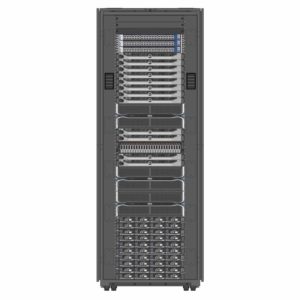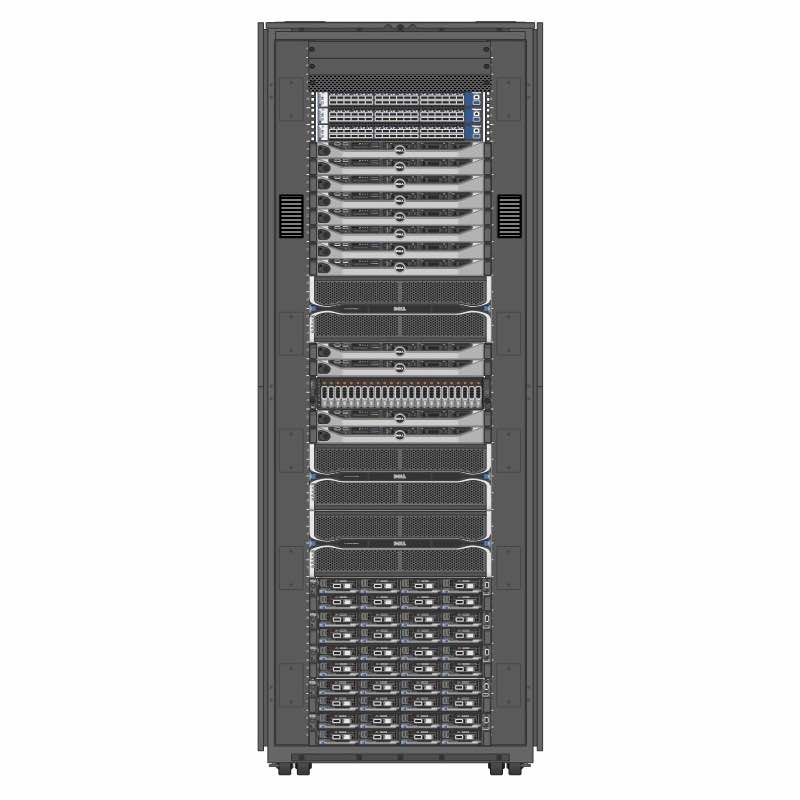
Dell HPC System for Life Sciences
Today Dell updated its high performance computing portfolio, including the availability of new Dell HPC Systems, early access to innovative HPC technologies, technology partner collaborations, and successful global customer implementations.
While traditional HPC has been critical to research programs that enable scientific and societal advancement, Dell is mainstreaming these capabilities to support enterprises of all sizes as they seek a competitive advantage in an ever increasing digital world,” said Jim Ganthier, vice president and general manager, Dell Engineered Systems, Cloud and HPC. “As a clear leader in HPC, Dell now offers customers highly flexible, precision built HPC systems for multiple vertical industries based upon years of experience powering the world’s most advanced academic and research institutions. With Dell HPC Systems, our customers can deploy HPC systems more quickly and cost effectively and accelerate their speed of innovation to deliver both breakthroughs and business results.”
Dell announced the global availability of the Dell HPC Systems portfolio, a family of HPC and data analytics solutions that combine the flexibility of customized HPC systems with the speed, simplicity and reliability of pre-configured systems. Dell engineers and domain experts designed and tuned the new systems for specific science, manufacturing and analytics workloads with fully tested and validated building block systems, backed by a single point of hardware support and additional service options across the solution lifecycle.
With simplified configuration and ordering, organizations can more quickly select and deploy updated Dell HPC Systems at any scale today. As an Intel Scalable System Framework configuration, these systems, available today, include the latest Intel Xeon processor families, support for Intel Omni-Path Architecture (Intel OPA) fabric, and software in the Dell HPC Lustre Storage and Dell HPC NFS Storage solutions:
- Dell HPC System for Life Sciences– Designed to meet the needs of life sciences organizations, this enables bioinformatics and genomics centers to deliver results and identify treatments in clinically relevant timeframes while maintaining compliance and protecting confidential data.
- Dell HPC System for Manufacturing –Enables manufacturing and engineering customers to run complex design simulations, including structural analysis and computational fluid dynamics.
- Dell HPC System for Research – Enables research centers to quickly develop HPC systems that match the unique needs of a wide variety of workloads, involving complex scientific analysis.
In this video, Dell’s Onur Celebioglu and Garmia Kochhar explore new technology, tune systems and share best practices in the Dell HPC Innovation Lab.
Dell has also instituted a customer early access program for early development and testing in preparation for Dell’s next server offering in the HPC solutions portfolio, the Dell PowerEdge C6320p server, which will be available in the second half of 2016, with the Intel® Xeon Phi™ processor (formerly code-named Knights Landing). The PowerEdge C6320p unique server engineering and design will enable customers to:
- Gain insights faster with a modular building block design, engineered to deliver faster insights for data-intensive computations and scale-up parallel processing.
Accelerate performance in dense and highly parallel HPC environments with 72 cores that are specifically optimized for parallel computing. - Simplify and automate systems management with the integrated Dell Remote Access Controller 8 (iDRAC8) with Lifecycle Controller. Customers can deploy, monitor, and update PowerEdge C6320p servers faster and ensure higher levels of service and availability.
The Texas Advanced Computing Center (TACC) at The University of Texas at Austin has partnered with Dell and Intel to deploy an upgrade to its Stampede supercomputing cluster with Intel Xeon Phi processors and Intel OPA via Dell’s early access program. Stampede, one of the main clusters for the Extreme Science and Engineering Discovery Environment (XSEDE), is a multi-use, cyberinfrastructure resource offering large memory, large data transfer, and GPU capabilities for data-intensive, accelerated or visualization computing for thousands of projects ranging from cancer cure research to severe weather modeling.
This month, the National Science Foundation awarded $30 million to TACC to acquire and deploy Stampede 2 as a strategic national resource to provide HPC capabilities for thousands of researchers in the U.S. The new Dell HPC System is expected to deliver a peak performance of up to 18 petaflops, more than twice the system performance of the current Stampede system.Three and a half years since its installation, Stampede ranks as the 12th most powerful supercomputer in the world, according to the June 2016 TOP500 list.
Additionally, Dell continues to bring HPC capabilities to mainstream enterprises through a series of evolving solutions and services designed to deliver a range of HPC as a Service capabilities, giving HPC sites a choice of local or remote management services with deployment on-premise, off-premise or a hybrid of the two. At ISC16, Dell will highlight a proof-of-concept with Cycle Computing, demonstrating the orchestration and management of Dell clusters, in a hybrid model sharing on-premise and public cloud resources, enabling customers to most efficiently utilize their on-premise systems while seamlessly providing access to the vast resources of the public cloud.
The Centre for High Performance Computing (CHPC) this month unveiled Lengau, ranked the no. 1 fastest HPC system in the African continent according to the June 2016 TOP500 list. Powered by 1,039 Dell PowerEdge servers, Dell Storage, Dell Networking and Mellanox FDR InfiniBand, the system is designed to open up new research capabilities and avenues, such as the Square Kilometer Array (SKA) radio telescope project, and stimulate private-sector projects in areas ranging from climate modelling to energy storage.
CHPC aims to equip our local researchers with powerful tools,” said Dr. Happy Sithole, Director, Centre for High Performance Computing. “Since we started working with Dell on HPC solutions in 2007, we’ve always taken inspiration from the fastest animals in the land. Our newest system, Lengau, (Cheetah) has a processing speed capable of nearly a petaflops, or a thousand-trillion floating point operations per second.”
Gustave Roussy, a premier European Cancer Center, integrates patient care, research and teaching to establish more individualized and less invasive cancer treatments. Since deploying its Dell HPC system, the hospital is now able to analyze genes more quickly to make informed decisions around personalized medicine.
Today, more than ever, we need state of the art technology to analyze genomes quickly to be able to determine the best treatments for a patient as soon as possible,” said Dr. Daniel Gautheret, Gustave Roussy. “It used to take us more than 30 hours to analyze a single patient sample. With our Dell HPC solution, we now can analyze 96 samples in less than a day. This is very encouraging as it enables faster time-to-treatment, and better results for our patients.”
Sensus, a utility technology provider, collects data from 17 million gas, electric and water meter sensors, and uses real-time analytics to define, validate and communicate that data in a meaningful way. The company implemented a data cluster based on Dell PowerEdge R730 and R730xd servers with Hadoop, which has enabled a 10x improvement in investigation response time.
Before, it might have taken us a week or two to process data because we were doing it manually and pooling it from different systems,” said Mike McGann, vice president of quality at Sensus. “Now, our project managers can instantly get a customer’s full data set. Having this data at our fingertips makes us a lot quicker on response time and allows us to provide faster and more accurate results, with defined metrics, to the business, so that we make really good decisions with real data.”
Tapad, a leader in cross-device content delivery, collects, stores and analyzes global consumer data that grows by terabytes each day, and provides customized, real-time business intelligence that tracks advertising efforts across devices. To improve employee efficiency and still maintain response times within milliseconds, regardless of transactional demand or data volumes, Tapad implemented a warehouse-scale computing model that includes high performance computing from the Dell PowerEdge FX architecture.
We have just milliseconds to respond to an auction bid or we miss the opportunity. To help marketers deliver a unified experience to consumers across all of their devices, we analyze billions of data points and then cross-reference those points to match up devices with consumers in a privacy-safe way,” said Ryan Tennant, vice president of Technical Operations at Tapad. “We’ve been able to help drive developers’ productivity, improve our testing capabilities and build better products for our customers by providing self-service, cloud-like compute and storage based on our Dell PowerEdge FX platform.”




